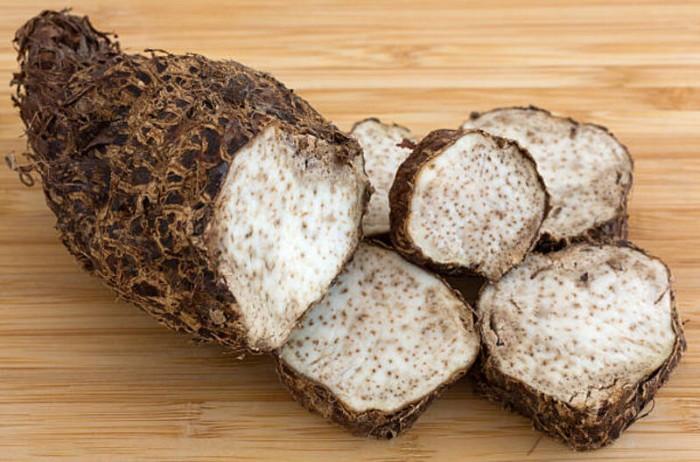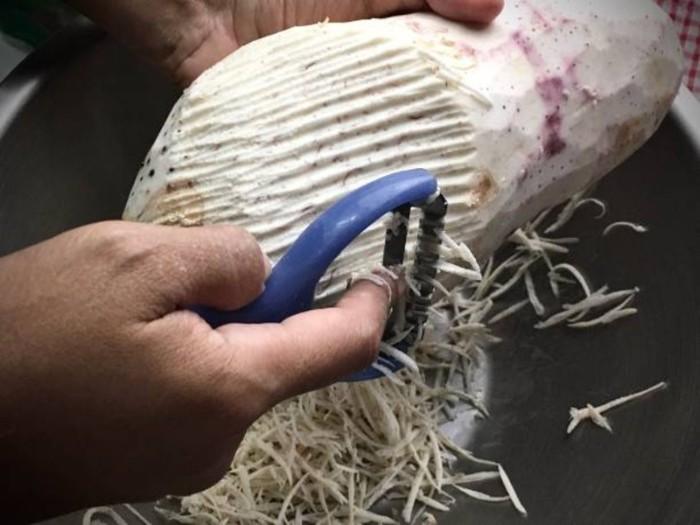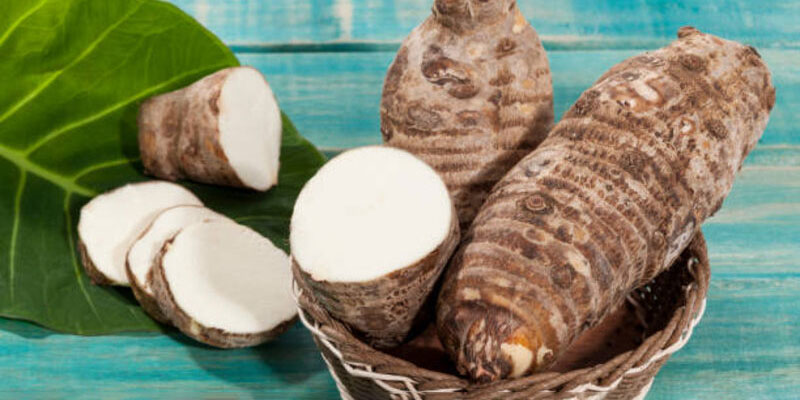Malanga, also known as the edible taro plant, is an incredibly nutritious and versatile vegetable that has been cultivated for centuries. It can be cooked in a variety of ways or enjoyed raw to reap its numerous health benefits. Rich in fiber, vitamins, minerals, and antioxidants; this superfood offers protection against chronic diseases such as heart disease and cancer. Its vast array of nutritional properties makes it a great addition to any healthy diet. In this blog post we will explore just some of the many malanga health benefits there are so you can decide if this sought-after superfood should join your kitchen pantry!
Overview of Malanga:
Malanga may not be a household name, but this root vegetable deserves attention for its many health benefits. Native to South America and the Caribbean, malanga boasts a creamy texture similar to its cousin, the taro root. Unlike potatoes, malanga is gluten-free and packed with essential nutrients. This starchy root vegetable is an excellent source of complex carbohydrates, fiber, and vitamins such as vitamin C, B6, and folate.
It is also an excellent source of minerals like iron, magnesium, and potassium. In addition to its impressive nutritional profile, malanga is also thought to have anti-inflammatory properties that may help reduce the risk of chronic conditions such as heart disease and diabetes. So the next time you're looking to mix up your menu, consider adding malanga to your grocery list for a nutritious and delicious change of pace.
How are Malanga Nutrients Beneficial to Your Health?
Malanga, also known as yautia, is a root vegetable that is popularly consumed in many Latin American countries. While it may not be as well-known as other root vegetables like carrots or potatoes, malanga is an excellent source of several essential nutrients that can benefit your overall health. For instance, it is high in dietary fiber, which promotes digestive health and may lower your risk of heart disease. Additionally, malanga is an excellent source of potassium, which helps to regulate blood pressure and maintain proper nerve function. It is also rich in vitamins C and B6, which support immune function and help your body to produce energy. Whether you enjoy malanga boiled, baked, or fried, this versatile root vegetable is a delicious and nutritious addition to any diet.
Digestive Benefits of Eating Malanga:
If you're looking for a root vegetable that provides major digestive benefits, look no further than malanga. Not only is this starchy tuber delicious when boiled, mashed, or roasted, but it's also packed with prebiotic fiber that can improve your gut health. When we consume prebiotics, they act as food for the beneficial bacteria in our stomachs, helping them flourish and do their job of breaking down food. This can lead to better digestion, improved nutrient absorption, and reduced inflammation in the gut. So if you want to boost your digestive health, add some malanga to your meal rotation today!
How to Include Malanga in Your Diet?
Malanga is a starchy root vegetable that can be a great addition to your diet. With its nutty taste and versatile texture, malanga can be used in a wide variety of dishes. You can roast it, mash it, boil it, or fry it. It can also be a healthy alternative to other starchy foods like potatoes or rice. Additionally, malanga is rich in vitamin C, fiber, and potassium, making it a great source of nutrition. Whether you add it to soups, stews, or as a side dish, malanga is an excellent way to mix up your meals and explore new tastes. So why not give this delicious root vegetable a try and see how you can include it in your diet?
Comparison of Malanga Health Benefits to Other Superfoods:
Everyone is searching for the perfect superfood to add to their diet, but with so many options, it can be overwhelming. Malanga, a starchy root vegetable, may not be as well-known as others on the list, but its health benefits are worth exploring. Malanga is packed with fiber, potassium, and vitamin C, making it great for digestion and overall immune system health. What sets malanga apart from other superfoods is its low glycemic index, which means it won't cause a rapid spike in blood sugar levels. Compared to other popular superfoods like kale or quinoa, malanga may not have the same trendy appeal, but its tasty versatility and unique nutritional profile make it a worthy contender in the superfood category.
Tips for Growing and Cooking with Malanga
Malanga is an incredible root vegetable that packs a serious nutritional punch. This starchy tuber is high in fiber and loaded with vitamins and minerals, making it a smart choice for anyone looking to add more nutrient-dense foods to their diet. But malanga isn't just good for you - it's also incredibly delicious! In order to get the most out of this versatile veggie, there are a few tips and tricks to keep in mind. For instance,
- malanga should always be cooked thoroughly before eating, and the skin should be removed first.
- You can bake, boil, fry, or grill malanga depending on your preference. And when it comes to seasoning, the sky's the limit - try adding garlic, ginger, or even some chili powder to give your malanga an extra kick.
- All in all, malanga is a great ingredient to experiment with in the kitchen, and with a little bit of know-how, you'll be cooking up delicious malanga dishes in no time!
Conclusion
Malanga is a nutrient-rich superfood that provides a wide range of health benefits. It's packed with vitamins and minerals like Vitamin C, magnesium, phosphorus, iron, zinc, and more. Malanga's digestive benefits are well-known - from providing fiber to helping protect against conditions like diverticulitis - and it has even been found to be beneficial when eaten regularly as part of a balanced diet. Malanga can be incorporated in many delicious dishes such as malanga pancakes or malanga mashed potatoes. With the right care for its cultivation and proper cooking techniques utilizing the healthy vegetable can significantly improve your overall health. For those looking to add more nutrient-rich items to their diets, malanga is an excellent choice and should be considered alongside other popular superfoods already known for their health benefits.
FAQs
How should I cook malanga?
Malanga can be baked, boiled, fried, or grilled depending on your preference. It's important to remember to always cook the skin off first, as it can be difficult to digest if left on. Try experimenting with different seasonings and spices for extra flavor!
Is malanga a good superfood?
Yes! Malanga's low glycemic index, as well as its array of vitamins and minerals, make it a great addition to any healthy diet. It's important to remember that no single food can provide all the nutrients you need, so adding items like malanga alongside other superfoods is a smart way to ensure you're getting all the nutrition your body needs.




